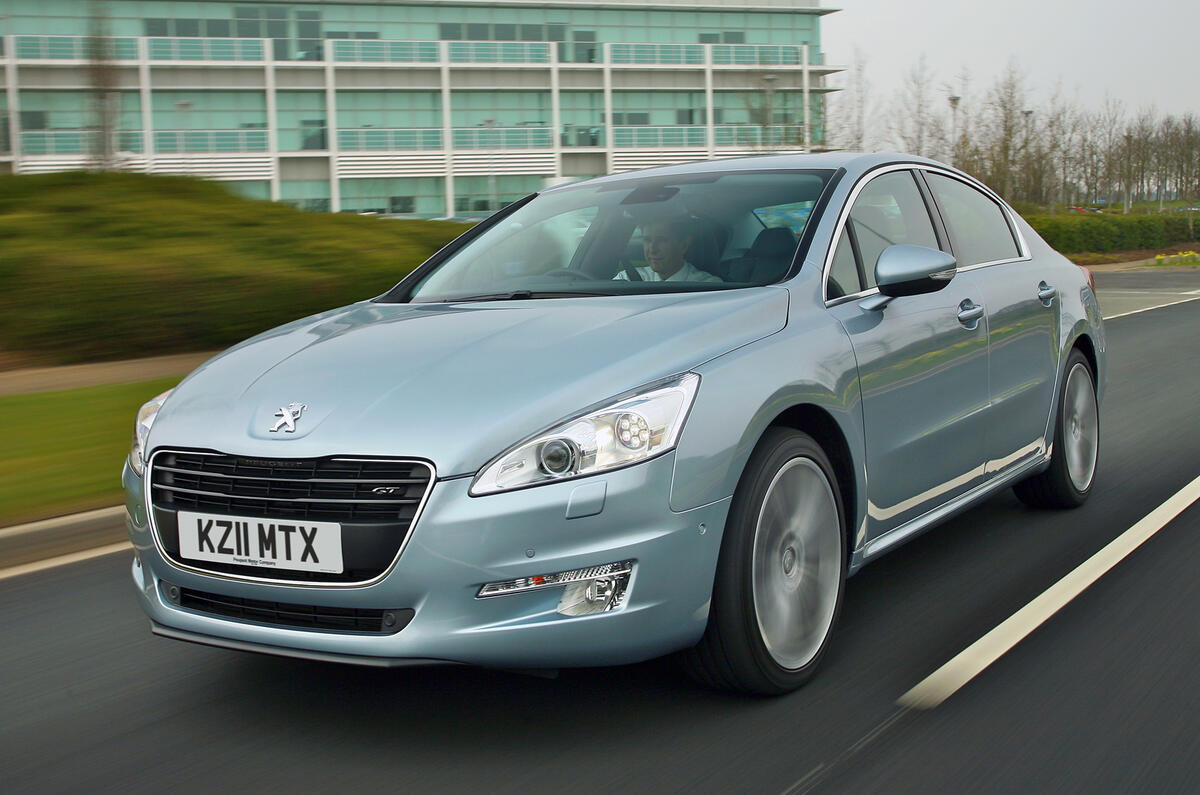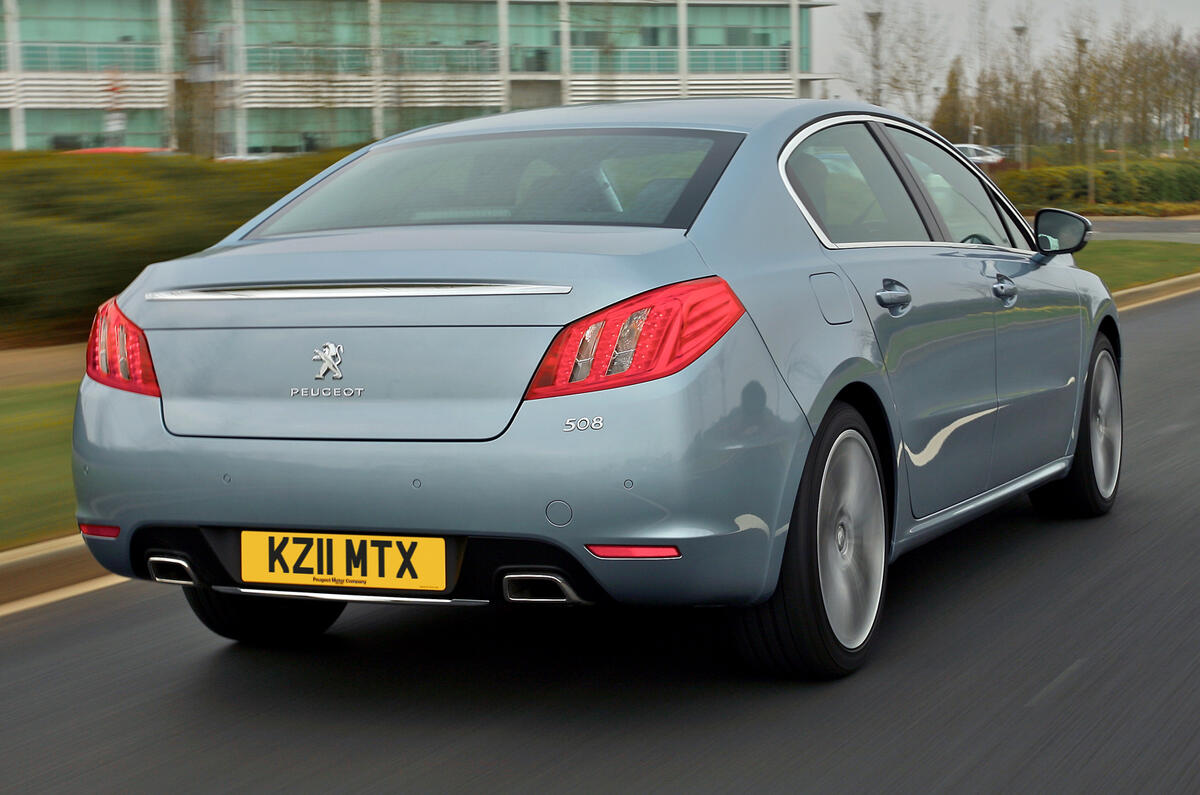What is it?
It's no exaggeration to say that every family-sized Peugeot of the past 20 years has been a failure in this country, mainly because, while the mostly-German opposition was growing in prestige and 'polish', the French (lulled into a false sense of security by a loyal home market) were giving us family saloons that were absolutely no better than they had to be. The 406 was honest but dowdy. The 407 was badly packaged and its styling exuded such naïve aggression no thinking man could imagine parking it on his driveway.
What’s it like?
The new 508 is all different. With its latest executive car – whose name-change to include the '5' from '5-series' is highly significant – Peugeot has left the old days behind at a stroke. The car's new look is convincingly svelte and modern, and while it's still not in the Mondeo class for rear space, it's as good as most in the sector and its boot is vast. Best of all, it now exudes what its predecessors never had: class. Which leaves one lingering question. We've already learned about its array of proven mechanicals and its comprehensive five-level model range (Access, SR, Active, Allure and GT). But how does it behave on British roads?
Our test car was a £23,100, 140bhp 508 Allure, a specification tipped to appeal to many buyers for its affordability and comprehensive equipment (including keyless entry, an automatic electric parking brake and half-leather trim). The diesel isn't the most powerful available (there's a 163 bhp offshoot) but it's the most powerful available with the conventional six-speed gearbox, with a peak torque output of 240 lb ft which is within a whisker of the top-range engine's 255lb ft.
You feel the torque as soon as you drive. The engine is well subdued, and feels strong. But there's enough shove at low revs in high gears (1500rpm in top equals 60 mph) to make the car feel impressively quiet and long legged. The steering and brakes are both excellent. The light, accurate wheel responses, which load just a little as cornering speeds rise, and the strong but easily modulated brakes, both bring to your mind a description the outgoing 407 never had: polish. The car has evidently had a dose of the painstaking dynamic development that routinely goes into Fords and Vauxhalls nowadays, and it shows.
The ride quality is a little surprising - for its sportiness. Riding on standard 18-inch wheels (lesser models have 16s and 17s) the 508 Allure has an almost Ford-like decisiveness about its body control – and the cost of that is a little more surface sensitivity than we've come to expect of bigger Peugeots. It still consumes UK-style potholes with aplomb, and feels solid and well screwed together. The torquey engine and short-throw shift let it flow along the road in an impressive way: the only drawback seems to be a little more wind noise at 60-70 than we'd have expected – and we'll have to test other 508s to be sure that's endemic to the model. In any case, tyre and mechanical noises are well suppressed.
Should I buy one?
In sum, on challenging UK roads, the Peugeot comes across as a true game-changer, with driving characteristics as good as its new looks. It'll be fascinating to see how long it takes the (overwhelmingly business) buyers to perceive and react to the changes.
Peugeot 508 2.0 HDI 140 Allure
Price: £23,100; Top speed: 130 mph; 0-62 mph: 9.8 sec; Economy: 58.9 mpg (combined); CO2: 125 g/km; Kerb weight: 1681 kg; Engine type: 4cyl, turbodiesel; Installation: transverse, front; Power: 140bhp at 4000rpm; Torque: 240lb ft at 2000rpm; Gearbox: 6-speed manual















Join the debate
Add your comment
Re: Peugeot 508 2.0 HDi
"Our test car was a £23,100, 140bhp 508 Allure."Quote
But it is badged as a GT , which might explain the surprisingly sporty ride quality.
Re: Peugeot 508 2.0 HDi
Really?! What was it like being a car? ;)
Re: Peugeot 508 2.0 HDi
Depends. Petrol and I'd agree but Diesel PSA cars were much better than Diesel Fords back in the 90s.